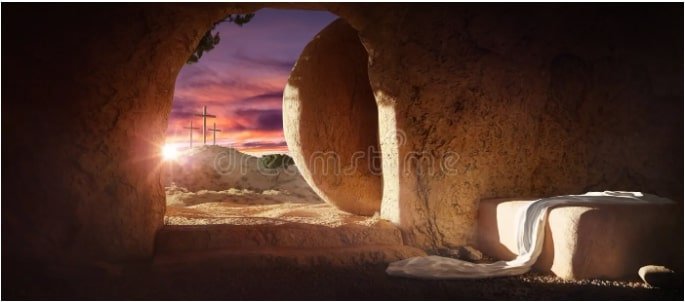What is Easter Sunday?
Easter commemorates the resurrection of Jesus Christ, as told in the New Testament. After Jesus was crucified and buried, His followers found His tomb empty three days later—this is celebrated on Easter Sunday.This resurrection is seen by Christians as proof that Jesus is the Son of God, and it affirms the promise of eternal life for believers.
Easter Sunday is the culmination of the Holy Week and the most significant celebration in Christianity. It commemorates the resurrection of Jesus Christ from the dead, three days after His crucifixion on Good Friday, as described in the New Testament (particularly the Gospels of Matthew, Mark, Luke, and John).
This event is considered the cornerstone of the Christian faith—symbolizing hope, renewal, and victory over sin and death.
When is it Celebrated?
Easter is a movable feast, meaning its date changes every year. It is celebrated on the first Sunday after the first full moon following the spring equinox (March 21). So, it can fall anywhere between March 22 and April 25. In 2025, Easter Sunday is on April 20th.
Easter and Holy Week
Easter is the climax of Holy Week, which includes:
- Palm Sunday – Jesus enters Jerusalem.
- Maundy Thursday – The Last Supper.
- Good Friday – Jesus is crucified.
- Holy Saturday – Jesus lies in the tomb.
- Easter Sunday – The Resurrection.

Religious Significance and Observances
- Sunrise Services: Many churches hold early morning services to symbolize the empty tomb found at dawn.
- Holy Communion or Eucharist: Central to Easter worship, recalling the Last Supper and resurrection.
- Joyful Worship: Churches are decorated with white and gold, flowers (especially lilies), and celebratory music.
Symbols of Easter and meaning:
- Egg: New life, resurrection.
- Bunny: Fertility, new beginnings (from pagan traditions).
- Light/Candle: Christ as the light of the world.
- Spring Flowers: New life, especially lilies symbolizing purity and resurrection.
- Sunrise: Reflects the early morning discovery of the empty tomb.
Easter Traditions Around the World
Though deeply religious, Easter also includes cultural and seasonal traditions, often tied to spring and rebirth:
- Easter Eggs: Symbolizing new life, eggs are dyed, decorated, and hunted by children.
- Easter Bunny: A folkloric figure who brings Easter eggs and candy—originating from German traditions.
- Egg Hunts and Egg Rolls: Common family and community activities.
- Feasts and Food: Roasts, sweet breads (like hot cross buns), and chocolate eggs are common.
- Paschal Greeting: In some traditions, people greet each other with “Christ is Risen!” and respond “He is Risen Indeed!”
Modern & Secular Celebrations
In modern times, Easter has also taken on more secular traditions, especially in Western countries:
- Easter Egg Hunts
- Chocolate Eggs and Candy
- Easter Parades
- Family Brunches and Picnics
- Retail Promotions and Spring Sales
Easter Around the World
- Italy: “La Pasqua” includes church services and massive processions. The Pope gives the Urbi et Orbi blessing from St. Peter’s Square.
- France: Church bells don’t ring between Good Friday and Easter Sunday (symbolizing mourning), then ring joyfully on Easter.
- Ethiopia:Follows the Orthodox calendar. The holiday is called Fasika, celebrated with fasting, prayer, and large feasts.
- Russia:Orthodox Christians greet each other with “Khristos Voskrese!” (Christ is Risen!) and kiss three times.
- Greece: Midnight church services, fireworks, and a meal of lamb and “magiritsa” soup.
- Spain: Somber Holy Week processions leading up to joyful Easter celebrations.
- Philippines: A unique “Salubong” (meeting) where statues of the risen Christ and Mary are ceremonially brought together.
- USA/UK: Easter egg hunts, chocolate bunnies, and family brunches.
Themes of Easter
- Resurrection and Renewal: Both spiritually (Christ’s resurrection) and symbolically (springtime, rebirth).
- Hope and Victory: Over sin, death, and despair.
- Light Triumphing Over Darkness
Interesting Facts
- The Easter Bunny legend came to America with German immigrants in the 1700s.
- Hot cross buns date back to ancient pagan spring festivals and later became associated with Good Friday.
- The White House Easter Egg Roll began in 1878 under President Rutherford B. Hayes.